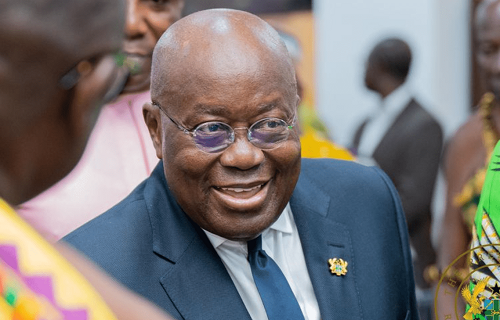
Lawyer Kow Essuman has described former President Akufo-Addo’s management of the COVID-19 pandemic as one of Ghana’s finest examples of crisis leadership, revealing the intense deliberations behind lockdown decisions.
Essuman, who served as presidential legal counsel during the pandemic, recalled the pressure and sleepless nights spent drafting emergency laws while balancing public safety with individual freedoms. Speaking on Starr Chat with Bola Ray, he characterized the period as comparable to fighting a war.
The lawyer revealed that President Akufo-Addo approached pandemic management with deep personal commitment, making every decision with ordinary Ghanaians in mind. This perspective shaped crucial policy choices, particularly regarding the timing and scope of lockdown measures that would affect millions of citizens.
One of the most difficult decisions facing the president involved whether to impose a total lockdown, according to Essuman. The delay in implementing lockdown measures stemmed from genuine concern about how ordinary Ghanaians would survive such restrictions. The former president reportedly questioned how people who queue daily to buy koko and kenkey would manage if confined to their homes.
This concern reflected broader tensions between necessary public health interventions and the economic realities facing Ghana’s population. Many Ghanaians depend on daily informal sector activities for survival, making extended lockdowns potentially catastrophic for household incomes and food security.
As legal counsel, Essuman worked closely with then Attorney General Gloria Akuffo to draft the Imposition of Restrictions Act. This legislation formed the legal framework for COVID-19 safety measures implemented throughout the pandemic. The drafting process required many nights of intensive work with the Attorney General’s department.
Parliament sat late into evenings as lawmakers gave their all to protect lives through emergency legislation. The urgency of the pandemic required rapid legislative action while maintaining constitutional safeguards and democratic processes. Ghana’s response demonstrated how quickly institutions could mobilize when facing existential threats.
Essuman also addressed persistent allegations regarding misuse of COVID-19 funds. He dismissed claims of widespread misappropriation, asserting that due process was followed throughout the pandemic response. The Auditor-General conducted reviews, and Parliament followed up on findings, he noted.
However, these assurances contrast sharply with ongoing public criticism of pandemic fund management. IMANI Africa President Franklin Cudjoe recently accused the Akufo-Addo administration of mismanaging billions of dollars in COVID-19 funds, suggesting public skepticism persists despite official explanations.
The debate over COVID-19 fund usage remains contentious in Ghanaian political discourse. While Essuman maintains that concrete evidence would have triggered actions, critics argue that accountability mechanisms proved insufficient given the scale of resources mobilized for pandemic response.
Ghana’s COVID-19 response drew international attention for its relatively swift action in implementing border closures, testing protocols, and partial lockdowns. The government established treatment centers, enhanced testing capacity, and launched public education campaigns about prevention measures.
President Akufo-Addo delivered numerous addresses to the nation throughout the pandemic, explaining government decisions and updating citizens on case numbers. These regular communications became a hallmark of Ghana’s response, with the president personally explaining policy rationale rather than delegating such responsibilities.
The economic support measures implemented during lockdowns included food distribution to vulnerable populations and stimulus packages for affected businesses. These interventions aimed to cushion the harsh economic impact of restrictions on movement and commercial activities.
Ghana’s pandemic experience highlighted tensions between public health imperatives and economic survival that many African countries faced. Limited fiscal space, large informal sectors, and weak social safety nets complicated lockdown implementation compared to wealthier nations with more robust support systems.
The legal framework developed during the pandemic may influence how Ghana approaches future public health emergencies. The Imposition of Restrictions Act established precedents for balancing executive authority with constitutional rights during crises, potentially shaping emergency response protocols for years to come.
Essuman’s reflections offer insider perspective on decision-making processes during Ghana’s most significant public health crisis in decades. His account emphasizes the human considerations that shaped policy choices, contrasting with critiques that focus primarily on financial management concerns.
The former legal counsel’s defense of pandemic management reflects broader political divisions over how the Akufo-Addo administration’s legacy should be assessed. Supporters highlight decisive action and concern for vulnerable populations, while critics point to accountability gaps and economic hardships.
As Ghana moves beyond acute pandemic phases, debates continue about lessons learned and accountability for resources deployed. These discussions will likely influence preparedness planning and governance reforms aimed at strengthening institutional responses to future emergencies.
The pandemic period tested Ghana’s democratic institutions, healthcare system, and social cohesion in unprecedented ways. How this experience shapes national resilience and emergency preparedness frameworks remains an ongoing conversation among policymakers, civil society, and ordinary citizens.
